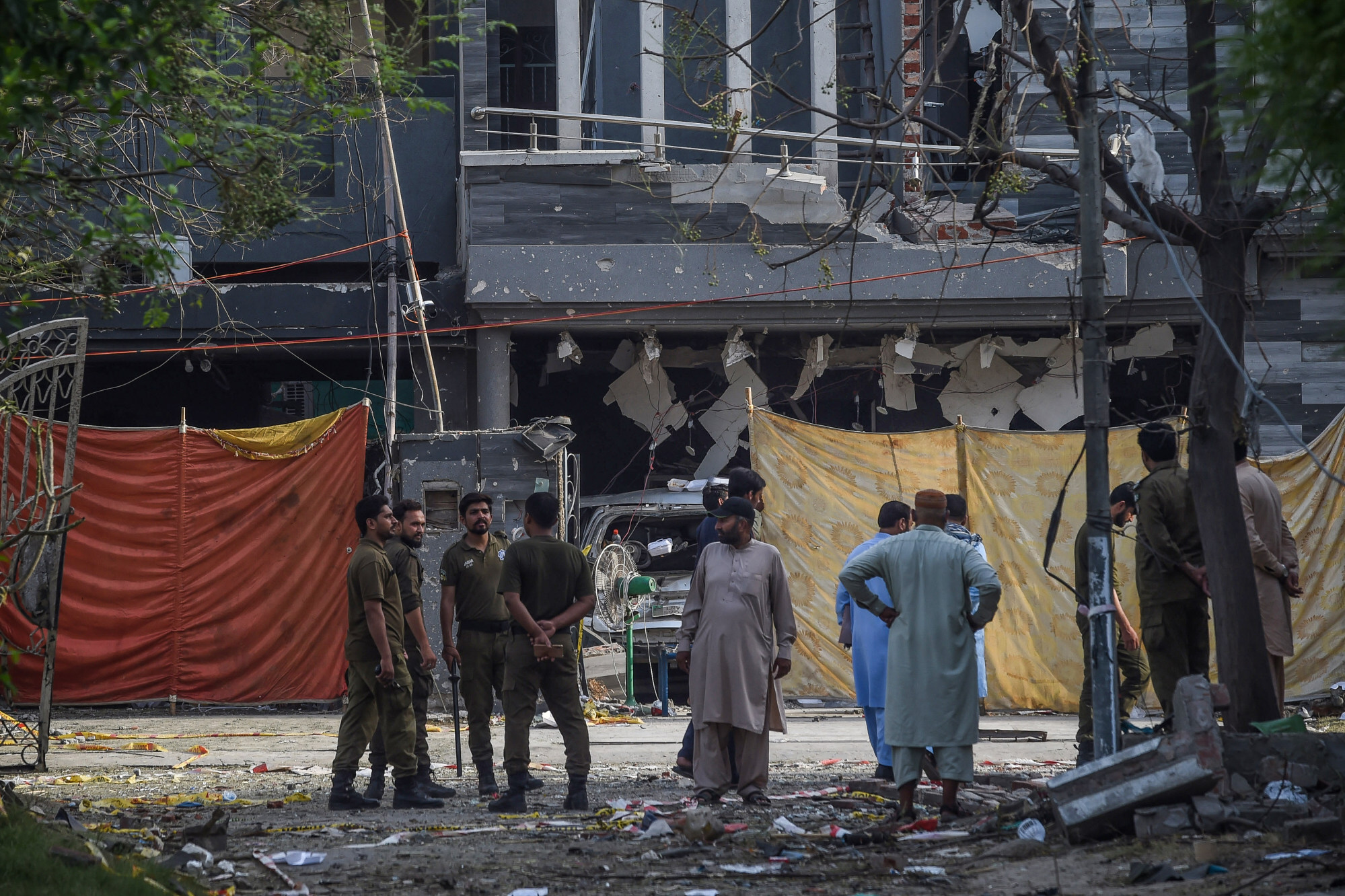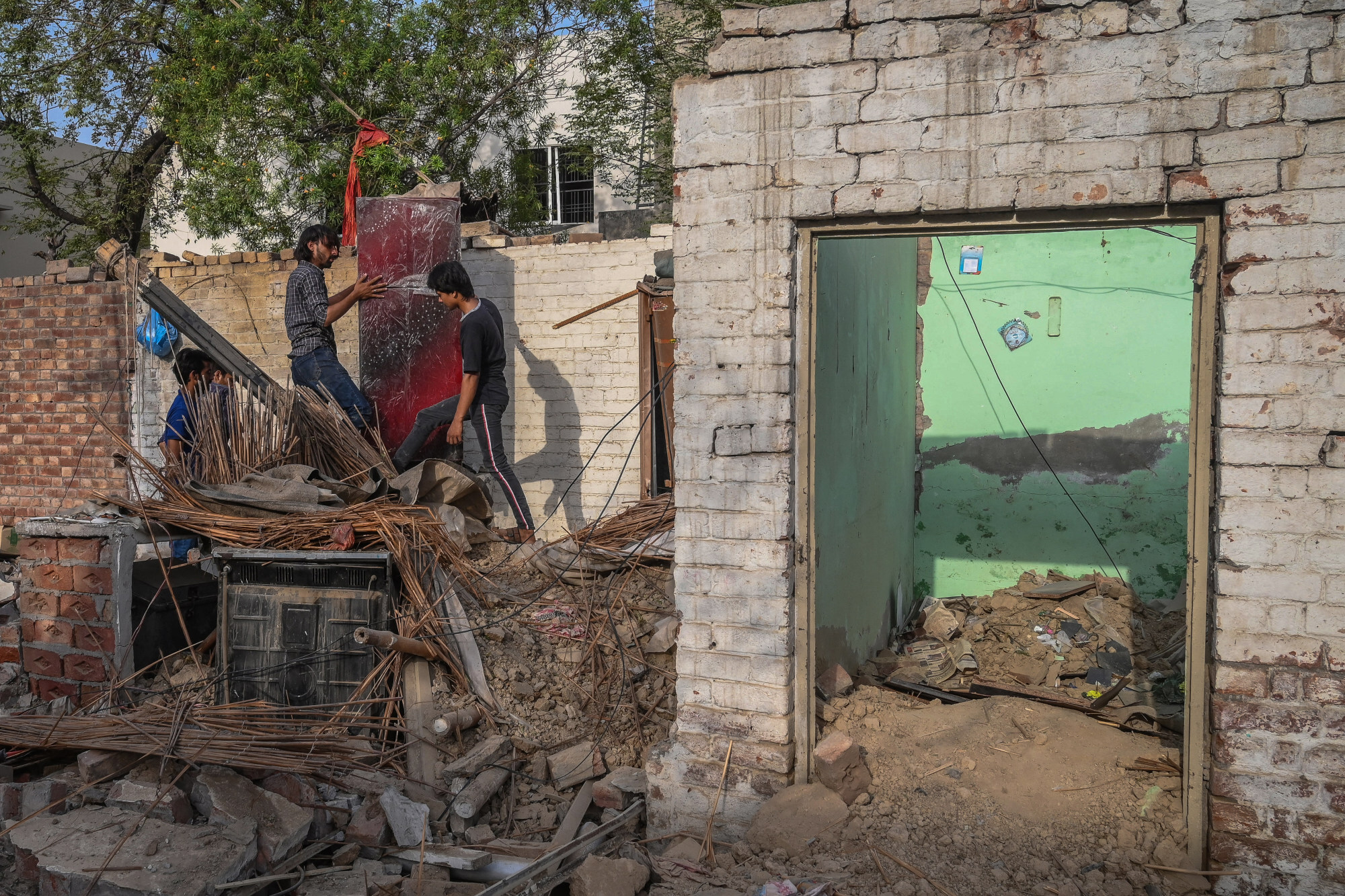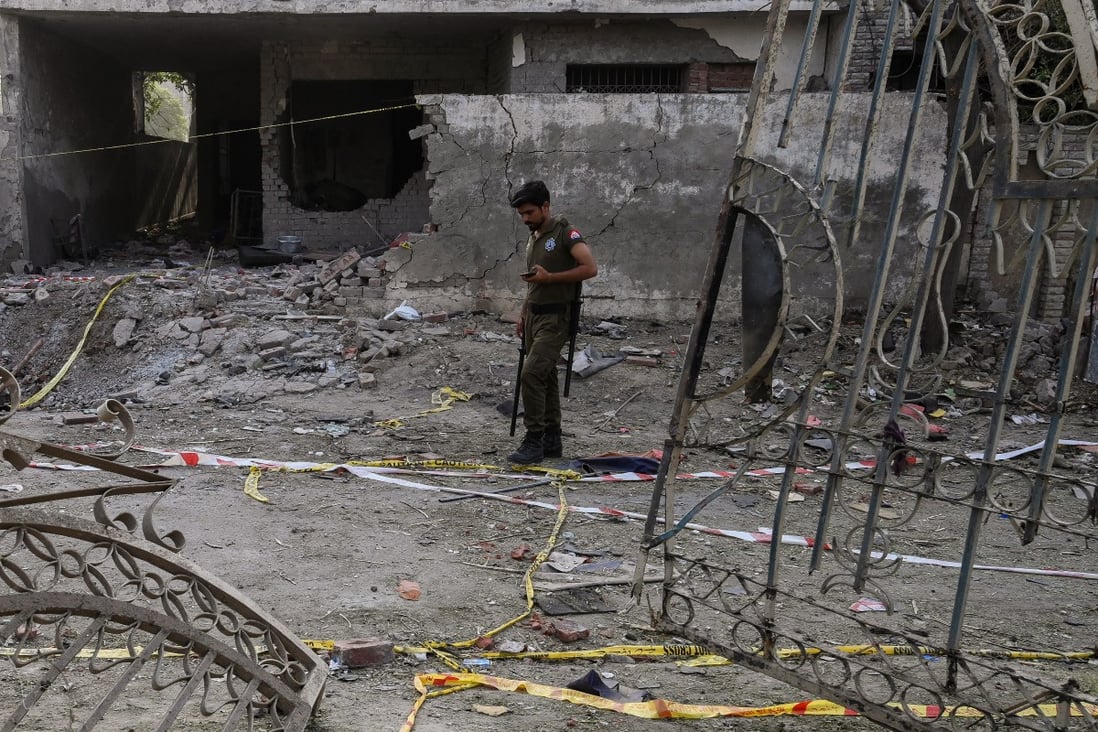- Target and timing of attack, which came as Indian leader Narendra Modi met Kashmiri political parties, sets alarm bells ringing
- ‘This could be a glimpse of the India-Pakistan proxy war in post-US Afghanistan,’ analyst says
Is the attack location a coincidence, or a shot across the bow?

Writing for the website of Indian television channel CNN-News18 on June 23, security analyst Praveen Swami said the Research and Analysis Wing (RAW), New Delhi’s external intelligence agency, “is believed to have slowly escalated the tempo of covert operations against jihadist groups inside Pakistan, targeting training camps, key field commanders and logistics facilities” in recent years.

He said that there was no evidence that the RAW had anything to do with the car bombing near Saeed’s home.
“But should it be involved, the attempted assassination of the JuD leader would mark a significant step up in lethality and reach” of the RAW within Pakistan, Swami wrote.
His analysis was borne out by the police chief of Pakistan’s Punjab province Inam Ghani, at a press conference in Lahore on Monday to announce that 10 Pakistanis had been arrested for carrying out the June 23 attack at the behest of “a hostile intelligence agency” – a phrase often used by officials to describe the RAW.
Ghani declined to name the agency, saying it would be “inappropriate”, and said the matter had been referred to the federal government for further investigation.
Speculation about Indian involvement in the car bombing is due largely to its target and timing.
Although the pro-Pakistan JuD has criticised the TTP, it has not previously been targeted by the insurgents.
Pakistani courts last year convicted and imprisoned Saeed and two other high-ranking JuD militants on charges of terrorism financing.
Pakistan’s government has also carried out 26 of 27 actions prescribed by the FATF.
However, the Paris-based body on June 24 declined to remove Pakistan from its so-called grey list, and said it would not do so unless Islamabad prosecuted the leaders of other jihadist groups.
Prominent among them is the Jaish-e-Mohammed (JeM) group, blamed by India for most of the high profile attacks on its security forces in Kashmir in recent years.
They included the February 2019 car bombing of a paramilitary convoy which killed 40 troops and sparked India’s aerial revenge attack on the training camp operated by the JeM near the town of Balakot, 200km north of Islamabad.
A week before the meeting, Pakistan warned India against taking further “illegal steps” to divide the half of Kashmir that it administers, or to change the demography of the
Furthermore, the explosion came as the national security advisers of India and Pakistan attended a counterterrorism meeting of the Shanghai Cooperation Organisation (SCO) in Dushanbe.
Backchannel talks held in the United Arab Emirates since January between Indian national security adviser Ajit Doval and the chief of Pakistan’s Inter Services Intelligence Lieutenant General Faiz Hameed on February 24 yielded the reinstatement of a ceasefire along the Line of Control which divides Kashmir, ending years of heavy skirmishes.
Likewise, Doval did not meet his Pakistani counterpart Moeed Yusuf on the sidelines of the Shanghai Cooperation Organisation conference in the Tajikistan capital.
Coming amid an escalating campaign by TTP insurgents based in Afghanistan and by separatists in restive Balochistan province, the Lahore attack has reinforced fears that Pakistan could face hostile borders on both of its lengthy flanks if ongoing efforts to normalise relations with India were to fail.
“Needless to say, it’ll be hard for [Pakistan Army Chief General Qamar Javed] Bajwa to maintain steadfast adherence to a Line of Control ceasefire if the Pakistan government concludes India is blowing up neighbourhoods in Lahore,” said Christopher Clary, a non-resident fellow at the Stimson Centre, a Washington-based think tank.


